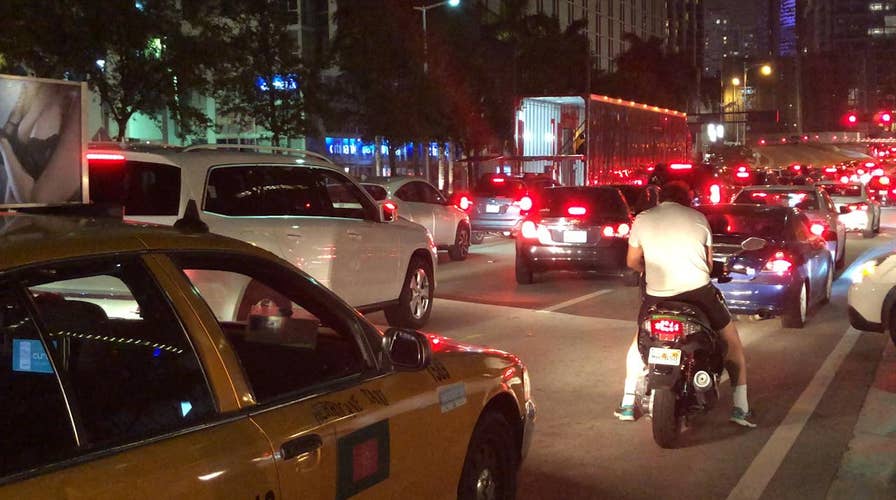Florida may be one of the first states to create a prostitution registry
Florida's legislature passed the bill and awaits the governor's signature.
MIAMI -- Florida lawmakers think they have a novel way to end human trafficking – by creating a registry for pimps and johns.
State lawmakers are pushing a bill that would create a public database, similar to the state’s registry of sex offenders, that would list the names, photographs and addresses of pimps and johns who are convicted.
“This is like the first step, in really chiseling away at that demand side,” said Miami-Dade State Attorney Katherine Fernandez Rundle.

Trapped for years, Cindy Alvarado, a sex trafficking victim, said she was threatened with death if she tried to leave. (Elina Shirazi/Fox News)
Rundle said she has worked with about 600 human trafficking victims over the years, and said the registry would be another tool to expose and track those who support the industry.
Florida, which has a large transient population, is considering a hotbed of human trafficking activity. About 261 of the country’s 4,000 sex trafficking cases were prosecuted in Florida last year.
Unlike the sex offender registry, the prostitution registry would not be available online, but will be a public record. The proposed legislation would allow johns to come off the registry if they don't re-offend after five years.
Rundle acknowledges the bill is harsh but said demand for trafficking victims would decrease if those who sought prostitutes, many of them victims of human trafficking, knew they could be publically humiliated.
“I mean, a lot of people respond to shame,” Rundle said.
The proposal comes after the very public arrest of New England Patriots owner Robert Kraft, who faces charges of solicitation of prostitution. Kraft, who is expected to beat the charges after key evidence was thrown out, was arrested in February after visiting a Florida spa that investigators believed was a front for human trafficking activity.

In the past dozen years, the National Human Trafficking Hotline has received reports of almost 35,000 sex trafficking cases coast to coast. (Elina Shirazi/ Fox News)
Florida ranks third in the country for human trafficking, much of it sex trafficking. California is first, with Texas second.
“If you have a registry of who are some of the buyers, and it is pretty strict about who's considered a buyer … but if you have that intelligence information as a law enforcement agency, that really broadens your scope,” Rundle said.
The proposed law also comes as the state is gearing up to host three major events that tend to spur a huge upsurge of human trafficking: the Super Bowl in Miami Gardens in 2020, Wrestlemania in Tampa in 2020 and the Super Bowl in Tampa in 2021.
A detective with the Special Victims Unit in Miami, who did not want his name to be used, said scaring off johns is critical to slowing the sex trade.
“Sex sells and the johns buy,” the detective said. “So, if we can minimize the buys, we can possibly help a victim.”
CLICK HERE TO GET THE FOX NEWS APP
Florida's legislature passed the bill in both the House and Senate, and lawmakers say they are waiting for the governor’s signature this month.

Nationally, there were 3,718 sex trafficking cases in 2018 and 261 in Florida alone. (Elina Shirazi/Fox News)
The law expected to help people like Cindy Alvarado, a human trafficking survivor and advocate, who told Fox News she was sold to a trafficker for $300.
She said she was lured with a promise of a fake babysitting job and was basically held captive beginning in 2010. She said for years she was moved back and forth between Virginia and Costa Rica by her traffickers.
Alvarado says the bill would shift the focus off the trafficked victims and more on the buyers of sex, by holding them accountable.
"Why are we being punished, worse, or harder than the johns, than the traffickers? I think it should be public. I think it should be the right of anybody else to know who is a danger to society ... buying somebody for sex should be public," Alvarado said.










































